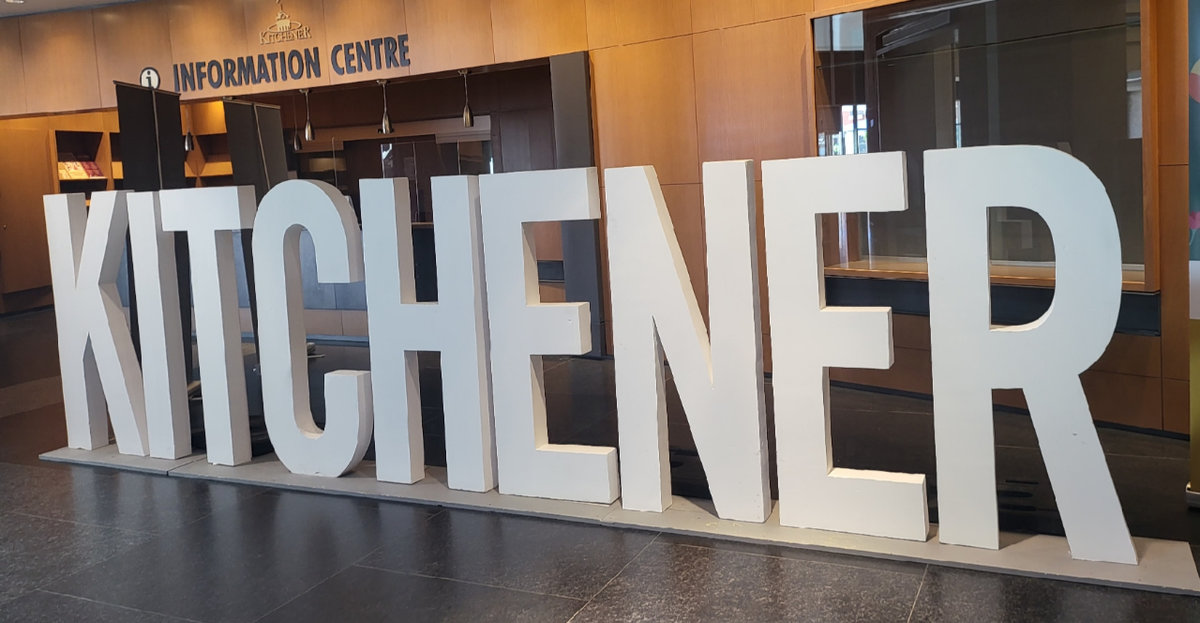
As your trusted Kitchener mortgage agent, I take immense pride in serving the vibrant and growing community of Kitchener. Whether you're a first-time homebuyer, refinancing your current mortgage, or looking to invest in local real estate, I am here to guide you through the entire process with knowledge, experience, and personalized service.
In the heart of Waterloo Region, Kitchener is a city on the rise. With a booming tech sector, a strong sense of community, and continuous urban development, the demand for homeownership has never been higher. But navigating the Kitchener housing market can be overwhelming without a reliable professional by your side. That’s where I come in and I can work closely with local realtors and lawyers to streamline the whole process of buying in Kitchener.
What makes Kitchener unique is its blend of urban living with small-town charm. The city is undergoing significant transformation—new subdivisions, revitalized downtown areas, and improved public transportation are reshaping how people live and work here.
As a Kitchener mortgage agent, I stay informed about local trends, property values, zoning changes, and economic shifts. This localized expertise allows me to offer tailored mortgage advice that reflects the realities of the Kitchener real estate market. Whether you're eyeing a property in Forest Heights, Doon South, or Downtown Kitchener, I can help you understand the best financing options for your needs.
One-size-fits-all doesn’t work when it comes to mortgages. Every buyer in Kitchener has a different financial background, lifestyle, and long-term goal. That’s why I take a personalized approach with each client.
As an independent mortgage agent in Kitchener, I’m not tied to any one bank. I work with a wide variety of lenders—from major banks and credit unions to alternative and private lenders. This flexibility allows me to shop the market on your behalf, comparing interest rates, terms, and features to find the mortgage product that truly fits your goals.
Whether you’re salaried, self-employed, or recently new to Canada, I can help you find a solution that works in the Kitchener housing landscape.
Buying your first home is exciting—but it can also be nerve-wracking, especially in a competitive market like Kitchener. I specialize in working with first-time homebuyers, helping them navigate everything from pre-approvals to closing costs.
I take the time to educate my clients on programs like the First-Time Home Buyer Incentive, the Home Buyers’ Plan (HBP), and regional rebates that apply specifically to homes purchased in Kitchener. My goal is to demystify the process and provide clarity so you can make informed decisions with confidence.
Many homeowners in Kitchener don’t realize that their current mortgage may not be their best option anymore. Interest rates change, home values rise, and financial goals shift over time. Whether you're looking to access home equity for renovations, consolidate debt, or simply secure a better interest rate, I can help you explore your refinancing options.
I also help Kitchener homeowners at the end of their mortgage term find better rates and terms when renewing. Instead of accepting your bank’s renewal offer, let me shop around and negotiate on your behalf—you might be surprised at the savings.
Kitchener is home to a growing number of entrepreneurs, freelancers, and small business owners. Unfortunately, traditional lenders often make it difficult for self-employed individuals to qualify for a mortgage, even if they’re financially stable.
As a Kitchener mortgage agent, I understand these challenges and have access to lenders that specialize in self-employed mortgage products. I’ll help you present your income and finances in the best light to ensure your application is strong and competitive.
Many people assume they need to go straight to their bank for a mortgage. But the truth is, working with an independent Kitchener mortgage agent offers significant advantages:
Access to more lenders: I work with over 30 lenders, giving you more choices and better rates.
Flexible approval criteria: If you have credit challenges or unique income sources, I can still find you a solution.
Unbiased advice: I work for you, not the lender.
Convenience: I handle all the paperwork, negotiation, and communication so you can focus on what matters—finding your dream home in Kitchener.
Best of all, my services are usually completely free to you. I'm compensated by the lender, so you receive expert guidance at no cost.
My relationship with clients doesn’t end when the deal is done. I continue to support Kitchener homeowners throughout the life of their mortgage—providing updates on market trends, refinancing opportunities, and helpful financial tips.
I also love giving back to the Kitchener community by hosting educational workshops, partnering with local businesses, and supporting charities that help families in need. For me, being a mortgage agent in Kitchener isn’t just about closing deals—it’s about making a meaningful impact in the lives of people I live and work among.
Whether you're just starting to explore the Kitchener real estate market or ready to make a move today, I’d be honored to help. No question is too small and no situation is too complex. Let’s sit down (in person or virtually), review your goals, and find a mortgage strategy that sets you up for long-term success.
Ready to work with a dedicated Kitchener mortgage agent who puts your interests first? Contact me for a free, no-obligation consultation. Let’s make your homeownership dreams in Kitchener a reality—together. Email me at [email protected] or call 519-576-4869

Choosing the best mortgage broker in Kitchener-Waterloo (or anywhere, really) comes down to a mix of research, references, and gut feeling. Here's a quick step-by-step guide to help you:
Talk to friends, family, coworkers, or your real estate agent.
Local Facebook groups, Realtors or searching online or Google Maps
Check Credentials & Experience
Make sure they’re licensed in Ontario through FSRA (Financial Services Regulatory Authority of Ontario).
Look for someone with several years of experience in the local market. Having someone that has brokered for more than 10 years will give expertise and knowledge as well as lender relationships and lender status. People that have worked for banks that have transitioned to brokers don’t have the background of placing all types of files as well as underwriting, as the bank underwrote for them.
Compare Rates – But Don’t Obsess Over Them
Brokers often have access to better rates, but the lowest rate doesn’t always mean the best mortgage (watch for prepayment penalties, etc.).
Ask them to explain the fine print.
Read Reviews Online
Look them up on: Google Reviews, Yelp, Better Business Bureau
Pay attention to how they handle negative feedback.
Interview a Few Brokers, Ask things like:
How many lenders do you work with?
How long have you been a broker?
What type of mortgage would you recommend and why?
Someone based in Kitchener-Waterloo will:
Understand local market conditions.
Have connections with local lenders or credit unions as well as realtors and lawyers.
Will be easier to meet in person if needed or has a commercial office for meeting.
I suggest confirming that they are local to the market you are buying or financing in.
How new developments might affect appraisal values or financing
Familiarity with Local Lenders
Some smaller credit unions or regional lenders offer better deals for locals — but only a broker familiar with the area would know or have relationships there.
Example: Access to lenders like Your Neighbourhood Credit Union or Libro Credit Union, which might not be available to brokers outside the area.
Experience With Local Rules and Delays
Some cities have specific timelines or quirks for closing (e.g., title delays, inspection trends, property taxes).
Neighborhood trends (e.g., rising demand in Huron Park vs. established areas like Westmount)
Local property values
Local brokers will anticipate these and keep things moving smoothly.
Look at Their Office Location
Are they based in Kitchener-Waterloo, or just marketing to it?
A physical office in the region is often a good sign and successful broker.
Ask About Local Deals
“Have you done many deals in [your neighborhood]?”
“Which lenders do you find work best in this area?”
“What trends are you seeing in [Forest Heights, Doon, etc.] right now?”
Check Their Network
Do they seem connected to local real estate agents, appraisers, and lawyers?
A well-connected broker can smooth out bumps in the process.
Read Local Reviews
See if clients from Kitchener-Waterloo mention specific neighborhoods or types of properties.
Check if they’ve worked with first-time buyers, investors, or new builds in your area.
Why Choosing a Local Mortgage Broker in Kitchener-Waterloo Matters
Kitchener-Waterloo is a vibrant, fast-growing tech and university hub with a unique mix of small-town charm and urban opportunity. Choosing a mortgage broker with local expertise ensures you get tailored advice that fits this specific market. They understand:
Neighborhood Dynamics: From the historic charm of Downtown Kitchener to the family-friendly suburbs of Laurelwood or Doon.
Local Lenders & Deals: Access to region-specific mortgage products through smaller banks and credit unions.
Market Trends: Awareness of price shifts due to tech expansion, student housing demand, or infrastructure projects like the ION LRT.
Tech + Innovation: Home to Google, OpenText, and hundreds of startups in Canada's “Silicon Valley North.”
Education & Talent: Anchored by the University of Waterloo and Wilfrid Laurier University, attracting global talent and innovation.
Connectivity: Easy access to Toronto via GO Train, with growing transit options thanks to the ION Light Rail.
Green Space: Tons of parks, trails, and nearby conservation areas like Huron Natural Area and Grand River trails.
Affordability: More affordable than Toronto or the GTA, while still offering great schools, amenities, and job opportunities.
Community Vibe: Strong community roots, festivals (like Oktoberfest), and a growing food and arts scene.

If the cap on insured mortgages increases from $1 million to $1.5 million, this could significantly impact the housing market. Here are some potential effects:
Increased Access to Financing: Buyers looking for higher-priced homes will have more access to insured mortgage options, making it easier to finance larger purchases.
Market Dynamics: This change could stimulate demand in the higher-end market, potentially driving up prices in certain areas.
Encouragement for Buyers: With a higher cap, buyers may feel more confident entering the market, knowing they can secure favorable financing for larger homes.
Potential Risks: While it may help some buyers, it could also increase risks for lenders if higher loan amounts lead to more defaults in economic downturns.
Impact on Affordability: While this change could assist some buyers, it might also contribute to affordability challenges in competitive markets, as higher limits could lead to increased competition and prices.
1.5 million dollars required $300,000 down and under new rules buyers can purchase with $125,0000 down as a minimum. Calculating downpayment is 5% of the first $500,000 and 10% of the remainder. Standard insurance premiums apply and are added to the mortgage based on downpayment. If a first-time buyer, the client is allowed to take a 30-year amortization for an additional .20% insurance premium. That is a home purchase with $175,000 less downpayment!
If first-time buyers are allowed to use 30-year amortizations after December 15, 2024, this could have several significant implications:
A $850,000 house purchase with a minimum down of $60,000 has a payment of $4451.91 on 25 years and $4050.59 on 30 years. The payment difference is $401.32/month and income required to purchase this house is $10,000 less for the 30-year amortization. Allowing families with disruption to income due to maternity leave, a bit more wiggle room in qualifying for a home purchase.
Staying informed about these changes and their implications is essential for both buyers and the market overall! If you have specific questions or need more information, let me know! Call or email me if you wish to discuss how the rules can help you purchase!
